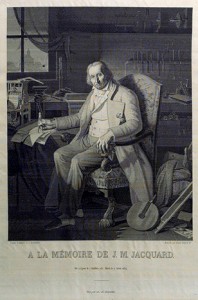About a week ago Instapundit linked this Wikipedia article about the higher-education bubble, noting especially the point that William Bennett predicted the bubble back in 1987. The post reminded me of some interesting and rather prescient comments that Peter Drucker made about education in his 1969 book The Age of Discontinuity . A few excerpts:
. A few excerpts:
Resources and expectations:
Education has become by far the largest community expenditure in the American economy…Teachers of all kinds, now the largest single occupational group in the American labor force, outnumber by a good margin steelworkers, teamsters and salespeople, indeed even farmers…Education has become the key to opportunity and advancement all over the modern world, replacing birth, wealth, and perhaps even talent. Education has become the first value choice of modern man.
This is success such as no schoolmaster through the ages would have dared dream of…Signs abound that all is not well with education. While expenditures have been skyrocketing–and will keep on going up–the taxpayers are getting visibly restless.
Credentials and social mobility:
The most serious impact of the long years of schooling is, however, the “diploma curtain” between those with degrees and those without. It threatens to cut society in two for the first time in American history…By denying opportunity to those without higher education, we are denying access to contribution and performance to a large number of people of superior ability, intelligence, and capacity to achieve…I expect, within ten years or so, to see a proposal before one of our state legislatures or up for referendum to ban, on applications for employment, all questions related to educational status…I, for one, shall vote for this proposal if I can.
Dangers of “elite” universities:
One thing it (modern society) cannot afford in education is the “elite institution” which has a monopoly on social standing, on prestige, and on the command positions in society and economy. Oxford and Cambridge are important reasons for the English brain drain. A main reason for the technology gap is the Grande Ecole such as the Ecole Polytechnique or the Ecole Normale. These elite institutions may do a magnificent job of education, but only their graduates normally get into the command positions. Only their faculties “matter.” This restricts and impoverishes the whole society…The Harvard Law School might like to be a Grande Ecole and to claim for its graduates a preferential position. But American society has never been willing to accept this claim…
It is almost impossible to explain to a European that the strength of American higher education lies in this absence of schools for leaders and schools for followers. It is almost impossible to explain to a European that the engineer with a degree from North Idaho A. and M. is an engineer and not a draftsman. Yet this is the flexibility Europe needs in order to overcome the brain drain and to close the technology gap.
Read more
 Ran across some information about a project to create an open-source Jacquard loom. A Jacquard has the ability to weave elaborately-patterned fabrics by controlling each individual warp thread in the weaving process. Machines that can handle a large number of threads are pretty costly…numbers I’ve seen are in the $30K-60K range…and there are evidently a lot of hobbyists and small businesspeople who would like such a loom but are unable to afford one. Hence, the open-source loom project.
Ran across some information about a project to create an open-source Jacquard loom. A Jacquard has the ability to weave elaborately-patterned fabrics by controlling each individual warp thread in the weaving process. Machines that can handle a large number of threads are pretty costly…numbers I’ve seen are in the $30K-60K range…and there are evidently a lot of hobbyists and small businesspeople who would like such a loom but are unable to afford one. Hence, the open-source loom project.